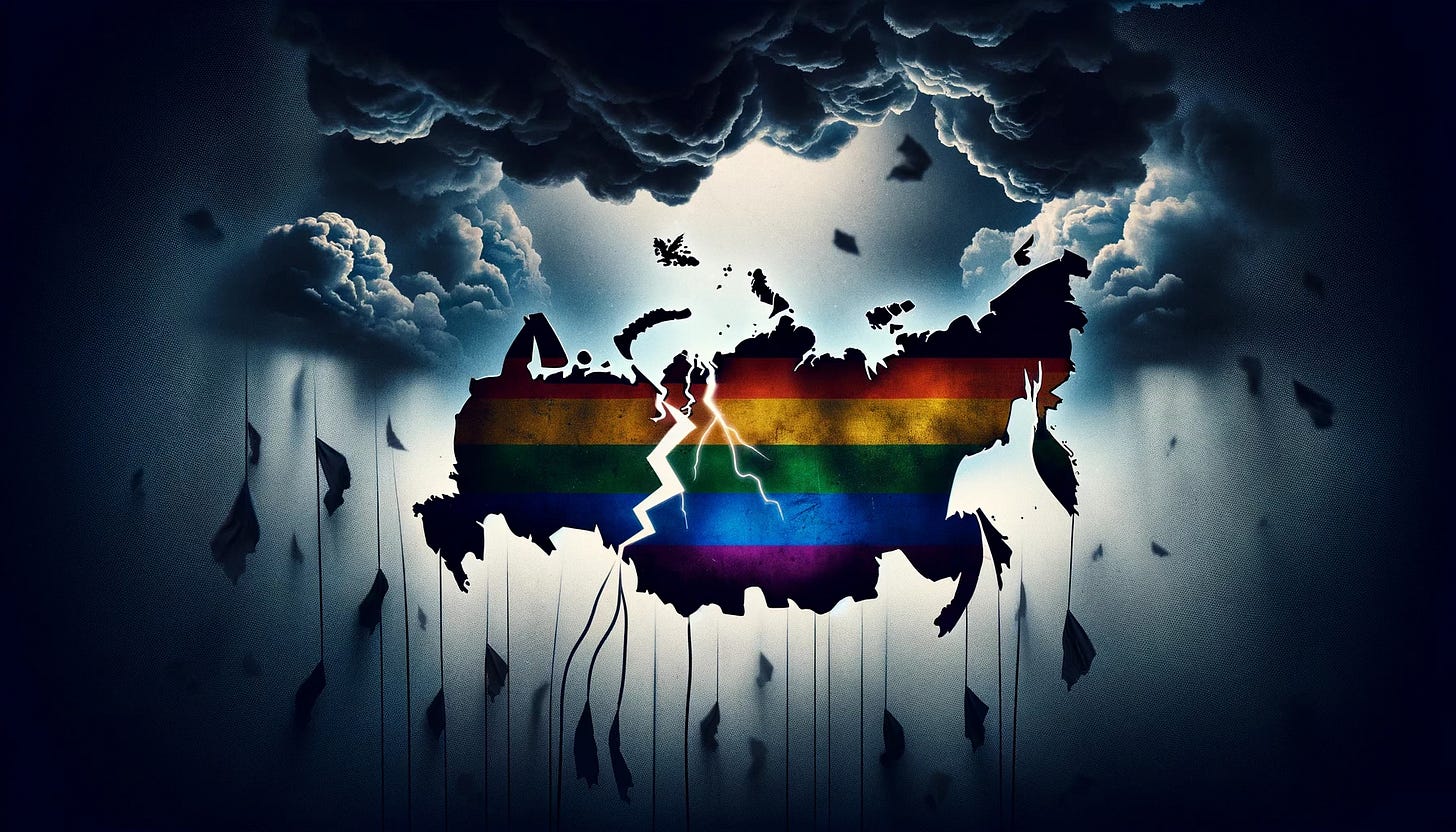Beyond Propaganda
Unveiling Russia's Crackdown on LGBTQ+ Rights
In the evolving landscape of Russian socio-political dynamics, the government's approach to LGBTQ+ rights stands out as a significant and contentious issue. The legislative actions, most notably the "gay propaganda" law enacted in 2013, have sparked international debate and concern. This law, which prohibits the promotion of "non-traditional sexual relationships" to minors, is often seen as the linchpin in Russia's legal stance against LGBTQ+ advocacy.
The law's proponents argue that it serves to protect children and uphold the traditional family structure that they claim is central to Russian cultural identity. They contend that the legislation is a necessary defense against the encroachment of Western liberal values, which are perceived to undermine societal norms and the national moral fabric.
However, the international community, including human rights organizations and LGBTQ+ advocacy groups, view this law as a clear infringement on freedom of expression and an act of state-sanctioned discrimination. The legislation has led to increased stigmatization of LGBTQ+ individuals, with reports indicating a rise in harassment and violence against them.
In a broader context, the legal categorization of LGBTQ+ advocacy as "extremist" activity has deeper implications. By labeling such advocacy in this way, the Russian government effectively marginalizes the LGBTQ+ community, equating their struggle for rights and recognition with acts that threaten national security. This extreme characterization provides the legal framework for suppressing dissent and controlling public discourse on sexuality and gender identity.
The ramifications of these policies extend beyond the immediate impact on LGBTQ+ individuals in Russia. They also affect the country's international relations, with many Western nations criticizing Russia's human rights record. The tension between upholding traditional values and respecting international human rights norms continues to be a flashpoint in Russia's engagements on the global stage.
The decision by the Russian government to label LGBTQ+ advocacy as "extremist" reflects a complex interplay of historical, cultural, and political factors. This labeling, embedded within broader legal measures like the "gay propaganda" law, illustrates the government's intent to control the narrative on family and morality within its borders. While the government defends these actions as necessary for cultural and societal preservation, the international community views them as a severe infringement on human rights. The ongoing debate encapsulates the tension between national sovereignty and global human rights standards, making it a topic of significant relevance and concern for observers around the world.


